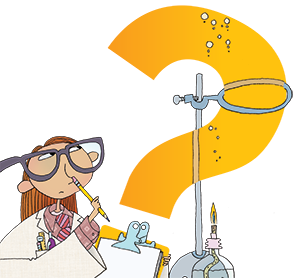
Before you present driving questions, provide students with an inquiry experience. They need a chance to play with the topics you will be discussing. The more senses that the experience can involve, the better.
Scenario: Imagine that you are going to start a unit on electricity. Bring in plastic bins with assorted wires, bulbs, switches, batteries, motors, screwdrivers, conductors, insulators, and so forth. Set the bins in the center of groups of students and have them tinker. Let them explore, build, wonder, experiment, and get to the point where their heads are brimming with questions. What makes a positive charge and what makes a negative charge? Why are some things conductors and others aren't? How much electricity is dangerous to people? How does a generator work? How come atoms in a generator don't run out of electrons?
Gathering Great Questions
After an inquiry experience, ask students to write down as many questions as they can think of about the topic. Then have them choose their best two questions and submit them to the class. Include your own guiding questions in the mix just to make sure they are represented, if you need them. Then, read the questions out to the class and have them select the questions they think are most interesting. This way, students feel ownership of and interest in the driving questions.
A question is a request for information. If you can inspire students to form their own questions about what they are studying, you've gotten them to the point where they are saying, "Teach me. I want to know." That's engagement.